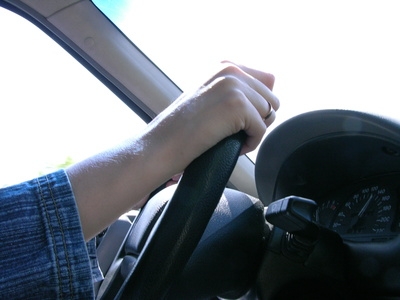
Few vehicles on the road today utilize manual steering systems. Power steering is preferred by most drivers because it reduces the steering effort needed to control the vehicle and improves driver comfort. Power steering systems use hydraulic pressure to assist the driver when making turns and create this pressure through the use of pumps and hydraulic fluids. Most causes of power steering failure can be traced to problems with the fluid or the pump.
Contamination problems occur more frequently in rack and pinion power steering systems. Contamination can occur when pumps fail, hoses deteriorate, or moisture gets into the power steering fluid. All of these problems result in material contaminating the power steering fluid which can plug small orifices in the steering system, increase friction, and interfere with the fluids hydraulic characteristics, resulting in a failure of the power steering system.
Low power steering fluid levels reduce the amount of hydraulic pressure created by the power steering pump, resulting in hard steering. Low fluid levels also cause increased wear of the power steering pump from inadequate lubrication and high fluid temperatures which further accelerates pump wear. Low power steering fluid can cause a power steering pump to wear out prematurely and can result in the eventual failure of the power steering system if not corrected.
Many vehicles use power steering pumps which are driven by a belt connected to the crankshaft of the engine. Worn belts can slip causing a reduction in the fluid pressure produced by the power steering pump, which increases the effort needed to operate the steering system. Power steering belts that catastrophically cause an immediate loss of power steering as the pump is no longer being driven by the engine.
As power steering pumps are operated and age they wear out. The seals and internal parts of the power steering pump break down over time and lead to an incremental loss of fluid pressure. As the pump wears out, pump noise and steering effort increases. Worn out pumps will eventually fail, leading to a total loss of fluid pressure and a failure of the power steering system.
Power steering systems require hydraulic fluid to operate. Hydraulic power steering fluid can leak from worn or damaged hoses and failing seals. When enough fluid is lost, the power steering pump can overheat or wear out prematurely, resulting in a loss of hydraulic pressure and failure of the power steering system.